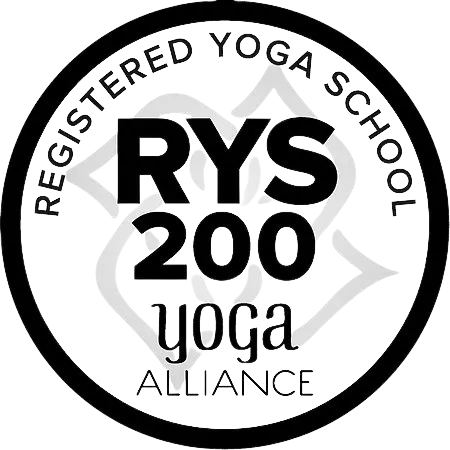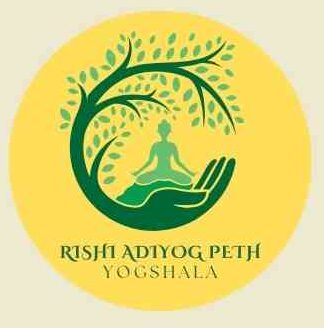Course Details:
200-Hour Yoga Teacher Training Course
Duration: 24 Days
Language: English
Module: Residential with Meal
Level: Beginner to Intermediate
Certification: Yoga Alliance
Style: Multi-Style
Course Fee:
USD 1249 (Single Occupancy)
USD 1049 (Double Occupancy)


Why Choose Rishi Adiyog Peeth for Your 200-Hour Yoga Teacher Training in India
Choosing Rishi Adiyog Peeth Nainital for your 200-hour yoga teacher training in India gives you real benefits:
Authentic Yoga Tradition: Learn traditional yoga in a spiritually rich environment.
Comprehensive Curriculum: Study asana, pranayama, yoga philosophy, anatomy, and teaching skills.
Experienced Teachers: Train with qualified instructors offering personalised guidance.
Holistic Approach: Focus on mind, body, and spirit transformation.
Supportive Community: Connect with fellow yoga practitioners from around the world.
Affordable Programs: Access high-quality training at one of the top 10 affordable yoga TTCs in India.
Peaceful Location: Practice in the calm and beautiful surroundings of Nainital.
Start your journey today with Rishi Adiyog Peeth!
The 200-Hour Yoga Teacher Training Course (TTC) is ideal for...
“Deepen your understanding of yoga and become a certified yoga instructor with this course, essential for building a strong foundation in yoga teaching.”
“Perfect for individuals with yoga experience who want to enhance their practice, gain new insights, and explore different yoga styles.”
Perfect for fitness, physical therapy, or holistic health practitioners who want to incorporate yoga into their services and deepen their knowledge of body mechanics and mindfulness.”
“Perfect for those interested in personal growth and holistic living, benefiting from the transformative aspects of yoga philosophy and yoga techniques.”
“Perfect for individuals who want to connect with like-minded yoga practitioners and build a supportive yoga community.”
Anyone looking to find balance through stress-relieving yoga and meditation will gain valuable tools from this training.”
“Perfect for those passionate about learning, wanting to explore the depth of yoga beyond the physical practice, including anatomy, yoga philosophy, and teaching methodologies.”

COURSE DURATION: 24 DAYS
200 HOUR YOGA TTC FEES:
USD1249 [Private Room] USD1049[Shared Room]
200 Hour Yoga Teacher Training Course In India-last day schedule
We’re excited to offer our 200-Hour Yoga Teacher Training over six days, packed with immersive yoga study and practice. On the seventh day, we’ll take a half-day trip to explore local holy shrines and temples.
During your stay, you’ll enjoy three delicious vegetarian meals daily, along with refreshing fruits and green tea. We recommend getting a good night’s sleep around 10 PM to fully embrace your yoga journey.
Here’s a glimpse of a typical day during our 200-Hour Yoga Teacher Training at Rishi Adiyog Peeth in beautiful Nainital, India. We can’t wait to welcome you!
Enhance your yoga practice and become a confident instructor.
Join the community,
6000+ and counting.
Benefits of Yoga Teacher Training with Rishi Adiyog Peeth
Your Daily Syllabus For 200-Hour Yoga Teacher Training
Your Daily Schedule at Rishi Adiyog Peeth, India
Ashtanga Yoga Curriculum
Sun Salutation A
Sun Salutation B
Standing Sequence Postures
Seated Sequence Introduction
Finishing Postures & Self-Practice
Hatha Yoga Curriculum
Classical Asanas (Standing, Seated, Supine, and Prone)
Pranayama (Breathing Techniques)
Shatkarma (Cleansing Techniques)
Bandhas and Mudras
Meditation and Relaxation Practices
Yoga Philosophy & Foundations Curriculum
Foundations of Yogic Philosophy – Introduction to Yog Darshan and the historical evolution of yoga across time.
Patanjali’s Yoga Sutras – Overview of the Yoga Sutras, with emphasis on the Four Padas (chapters) and the Eight Limbs of Ashtanga Yoga.
Subtle Body Concepts – Understanding the Nadis (Ida, Pingala, and Sushumna), Chakras, Pancha Vayus (five vital energies), and Panchakoshas (five sheaths of existence).
Scriptural Wisdom – Introduction to Hatha Yoga Pradipika and its practical relevance; basic insights into the Vedas and their connection to yogic knowledge.
Philosophical Concepts – Exploration of the Trigunas (Sattva, Rajas, and Tamas) and their influence on mind and behavior.
Inspiration from Yogic Lives – Stories of great yogis and spiritual masters to inspire dedication and deepen understanding of yogic living.
Anatomy & Physiology Overview
Introduction to Yogic Anatomy & Physiology
Basics of yogic anatomy, psychology, and how yoga aligns with modern science.Scientific Understanding of Yoga
Exploring yoga’s impact on physical, mental, emotional, and spiritual health from a scientific perspective.Movement & Asana Science
Understanding asanas through yogic principles, biomechanics, and safe movement.Body Alignment & Joint Anatomy
Focused study on alignment and biomechanics of seven key areas: spine, hips, knees, feet, wrists, elbows, and shoulders.Joint Care
In-depth analysis of wrist, elbow, and shoulder joints — including anatomy, alignment, prehab, and rehab strategies.
Pranayama & Meditation
Introduction to breathwork and meditation techniques.
Practice of key pranayamas: Nadi Shodhana, Bhramari, Kapalabhati, Bhastrika, Anulom Vilom.
Breath awareness for stress relief and focus.
Guided meditations using breath, sound, and visualization.
Benefits for physical, mental, and spiritual well-being.
Shatkarma (Yogic Cleansing Techniques)
Introduction to the six classical purification practices of Hatha Yoga.
Techniques include:
Neti (nasal cleansing)
Dhauti (digestive tract cleansing)
Nauli (abdominal massage)
Basti (colon cleansing)
Kapalabhati (frontal brain cleansing)
Trataka (concentration through gazing)
Purpose: Detoxification, improved digestion, mental clarity, and energy balance.
Instructional Techniques: Utilize clear verbal cues, demonstrations, and hands-on adjustments to guide students through practices.
Class Structure: Design classes with a logical flow, incorporating warm-ups, peak poses, and cool-downs to ensure a balanced practice.
Alignment & Safety: Emphasize proper alignment and mindful movement to prevent injuries and promote effective practice.
Adaptability: Modify practices to accommodate various skill levels and individual needs, ensuring inclusivity.
Continuous Learning: Encourage ongoing education and self-reflection for both teachers and students to foster growth and development.
Purpose: Ensures safety, enhances stability, and deepens the benefits of each pose.
Key Principles:
Neutral Spine: Maintain natural curves to support the body’s structure.
Joint Stacking: Align bones to prevent strain and promote balance.
Muscle Engagement: Activate appropriate muscles to support and stabilize.
Adjustment Techniques:
Verbal Cues: Provide clear instructions to guide students into proper alignment.
Demonstrations: Show correct posture to serve as a visual reference.
Physical Adjustments: Offer hands-on assistance when appropriate and with consent.
Benefits:
Reduces risk of injury.
Improves posture and body awareness.
Enhances energy flow and muscle engagement.
Meditation Techniques We Teach
Om / Mantra Meditation: Repeat a sound or phrase to calm the mind.
Trataka (Candle Gazing): Focus on a candle flame to improve concentration.
Osho Dynamic Meditation: An Active method with fast breathing, movement, and silence.
Silent Meditation: Sit quietly to build inner awareness.
Japa Meditation: Chant or repeat a mantra to stay focused.
Ajapa Japa: Feel the mantra flowing naturally with your breath.
Antar Mouna (Inner Silence): Watch your thoughts to create deep inner peace.
Nada Brahma Meditation: Listen to inner sound vibrations to feel connected.
Asana Practical Test: Demonstration of foundational postures and alignment principles.
Attendance: Regular presence in classes.
Performance: Active participation and skill development.
Behavior: Exhibition of respect, mindfulness, and positive attitude.
1. Sound Healing
2. Kirtan Meditation
3. Yoga Nidra
4. Breathwork
5. Aromatherapy
Assessment
Practical: Show asana, alignment, and teaching skills.
Written: Test on philosophy, anatomy, and methods.
Teaching: Lead a demo class.
Certification
Finish the course
Pass all tests
Get certified
Recognised By
Yoga Alliance (USA): RYT 200 / 500
YCB (India): Govt. certified Yoga Instructor & Evaluator
FACILITIES
- Complimentary Internate Services
- Showers with 24*7 Hot and Cold water
- Excursions and visits to places of intrest
- free food for upto 9 years kid(Accmmodation charges apply)

What are you going to eat?
||यौगिकं आहार: सत्यसम्पन्न:||
YOGIKAM AAHARAH SATYASAMPANNAH
Yogik food is nourishing and rooted in truth
The Sole of sattvic food: Nourishing the body, mind, and spirit
At Rishi Adiyog Peeth, we follow the ancient wisdom of Satvik food—pure, vegetarian, and aligned with Ayurveda. This holistic diet supports balance in body, mind, and soul, enhancing your journey through yoga and meditation. Ideal for those joining our 200-hour Yoga Teacher Training in India at one of the top yoga schools in Uttarakhand, offering affordable TTCs, Hatha and Ashtanga yoga, and residential courses.

Why choose Satvik Food
Promotes Inner Peace: Satvik meals calm the mind and reduce stress.
Enhances Digestion: Pure, seasonal, and freshly prepared foods boost gut health.
Improves Vitality: This diet energises the body without causing lethargy.
Supports Yoga & Meditation: Perfect for spiritual seekers, it deepens focus and clarity.
At Rishi Adiyog Peeth, Satvik food enhances your yoga retreat or Ayurveda journey, supporting your transformation. Join our 200-hour Yoga Teacher Training in India at top schools, focusing on Hatha, Ashtanga, and mindful living.
How to reach here
By Air
Nearest Airport: Pantnagar Airport (PGH)
Connected with daily flights from Delhi
By Train
Nearest Railway Station: Kathgodam Railway Station (KGM)
By Road
Bhimtal is well connected by road to major cities in North India.
